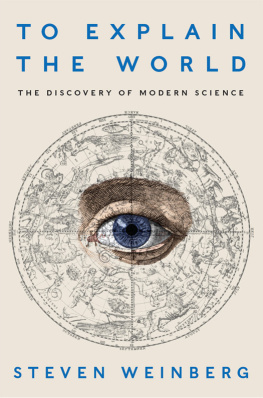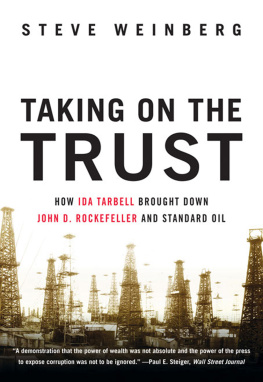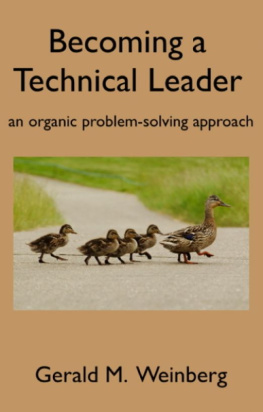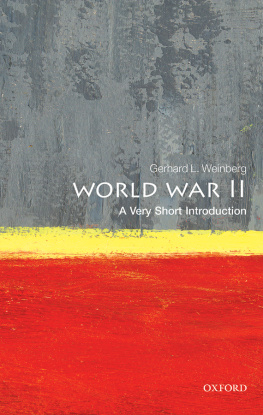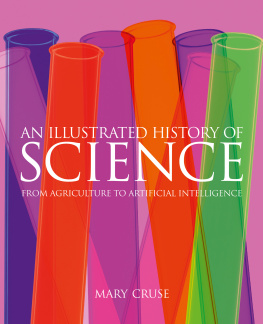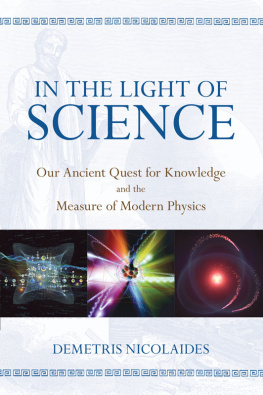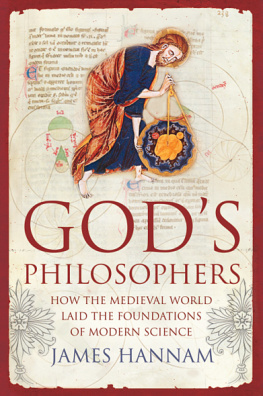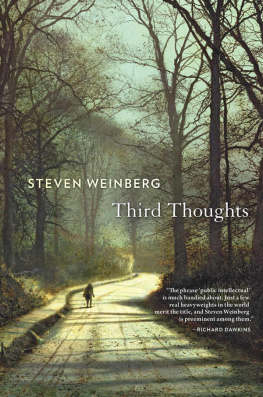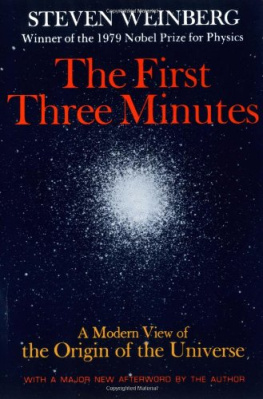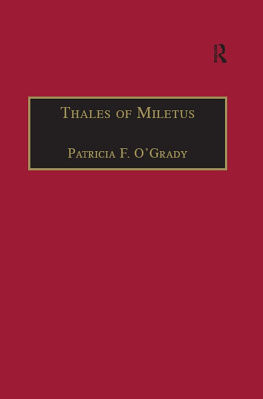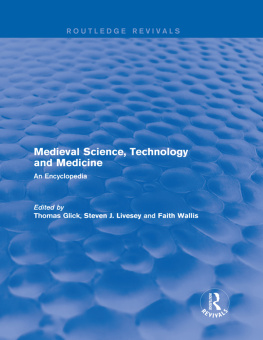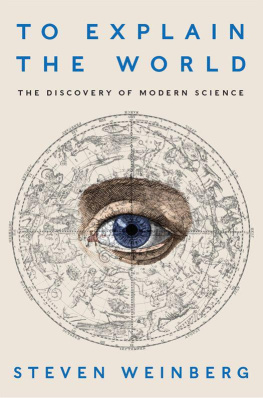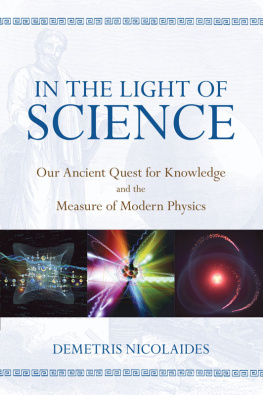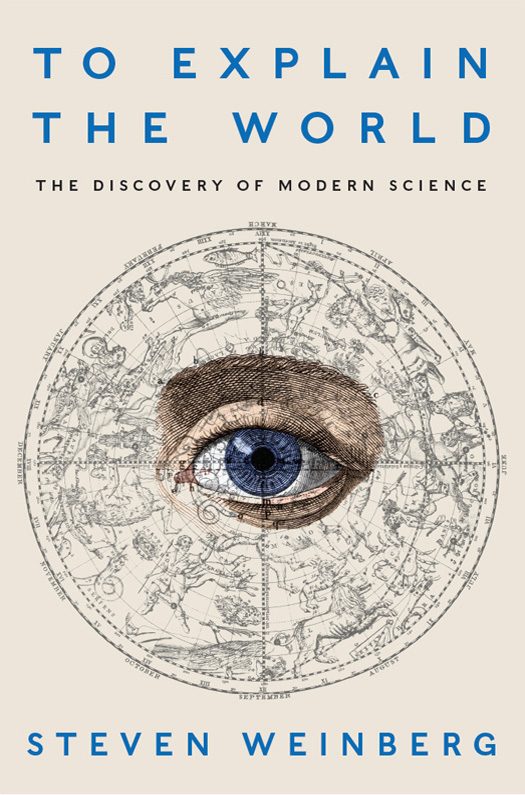To Louise, Elizabeth, and Gabrielle
These three hours that we have spent,
Walking here, two shadows went
Along with us, which we ourselves produced;
But, now the sun is just above our head,
We do those shadows tread;
And to brave clearness all things are reduced.
John Donne, A Lecture upon the Shadow
Contents
I am a physicist, not a historian, but over the years I have become increasingly fascinated by the history of science. It is an extraordinary story, one of the most interesting in human history. It is also a story in which scientists like myself have a personal stake. Todays research can be aided and illuminated by a knowledge of its past, and for some scientists knowledge of the history of science helps to motivate present work. We hope that our research may turn out to be a part, however small, of the grand historical tradition of natural science.
Where my own past writing has touched on history, it has been mostly the modern history of physics and astronomy, roughly from the late nineteenth century to the present. Although in this era we have learned many new things, the goals and standards of physical science have not materially changed. If physicists of 1900 were somehow taught todays Standard Model of cosmology or of elementary particle physics, they would have found much to amaze them, but the idea of seeking mathematically formulated and experimentally validated impersonal principles that explain a wide variety of phenomena would have seemed quite familiar.
A while ago I decided that I needed to dig deeper, to learn more about an earlier era in the history of science, when the goals and standards of science had not yet taken their present shape. As is natural for an academic, when I want to learn about something, I volunteer to teach a course on the subject. Over the past decade at the University of Texas, I have from time to time taught undergraduate courses on the history of physics and astronomy to students who had no special background in science, mathematics, or history. This book grew out of the lecture notes for those courses.
But as the book has developed, perhaps I have been able to offer something that goes a little beyond a simple narrative: it is the perspective of a modern working scientist on the science of the past. I have taken this opportunity to explain my views about the nature of physical science, and about its continued tangled relations with religion, technology, philosophy, mathematics, and aesthetics.
Before history there was science, of a sort. At any moment nature presents us with a variety of puzzling phenomena: fire, thunderstorms, plagues, planetary motion, light, tides, and so on. Observation of the world led to useful generalizations: fires are hot; thunder presages rain; tides are highest when the Moon is full or new, and so on. These became part of the common sense of mankind. But here and there, some people wanted more than just a collection of facts. They wanted to explain the world.
It was not easy. It is not only that our predecessors did not know what we know about the worldmore important, they did not have anything like our ideas of what there was to know about the world, and how to learn it. Again and again in preparing the lectures for my course I have been impressed with how different the work of science in past centuries was from the science of my own times. As the much quoted lines of a novel of L. P. Hartley put it, The past is a foreign country; they do things differently there. I hope that in this book I have been able to give the reader not only an idea of what happened in the history of the exact sciences, but also a sense of how hard it has all been.
So this book is not solely about how we came to learn various things about the world. That is naturally a concern of any history of science. My focus in this book is a little differentit is how we came to learn how to learn about the world.
.) But this is a work on the history rather than the philosophy of science. By explanation I mean something admittedly imprecise, the same as is meant in ordinary life when we try to explain why a horse has won a race or why an airplane has crashed.
The word discovery in the subtitle is also problematic. I had thought of using The Invention of Modern Science as a subtitle. After all, science could hardly exist without human beings to practice it. I chose Discovery instead of Invention to suggest that science is the way it is not so much because of various adventitious historic acts of invention, but because of the way nature is. With all its imperfections, modern science is a technique that is sufficiently well tuned to nature so that it worksit is a practice that allows us to learn reliable things about the world. In this sense, it is a technique that was waiting for people to discover it.
Thus one can talk about the discovery of science in the way that a historian can talk about the discovery of agriculture. With all its variety and imperfections, agriculture is the way it is because its practices are sufficiently well tuned to the realities of biology so that it worksit allows us to grow food.
I also wanted with this subtitle to distance myself from the few remaining social constructivists: those sociologists, philosophers, and historians who try to explain not only the process but even the results of science as products of a particular cultural milieu.
Among the branches of science, this book will emphasize physics and astronomy. It was in physics, especially as applied to astronomy, that science first took a modern form. Of course there are limits to the extent to which sciences like biology, whose principles depend so much on historical accidents, can or should be modeled on physics. Nevertheless, there is a sense in which the development of scientific biology as well as chemistry in the nineteenth and twentieth centuries followed the model of the revolution in physics of the seventeenth century.
Science is now international, perhaps the most international aspect of our civilization, but the discovery of modern science happened in what may loosely be called the West. Modern science learned its methods from research done in Europe during the scientific revolution, which in turn evolved from work done in Europe and in Arab countries during the Middle Ages, and ultimately from the precocious science of the Greeks. The West borrowed much scientific knowledge from elsewheregeometry from Egypt, astronomical data from Babylon, the techniques of arithmetic from Babylon and India, the magnetic compass from China, and so onbut as far as I know, it did not import the methods of modern science. So this book will emphasize the West (including medieval Islam) in just the way that was deplored by Oswald Spengler and Arnold Toynbee: I will have little to say about science outside the West, and nothing at all to say about the interesting but entirely isolated progress made in pre-Columbian America.
In telling this story, I will be coming close to the dangerous ground that is most carefully avoided by contemporary historians, of judging the past by the standards of the present. This is an irreverent history; I am not unwilling to criticize the methods and theories of the past from a modern viewpoint. I have even taken some pleasure in uncovering a few errors made by scientific heroes that I have not seen mentioned by historians.
A historian who devotes years to study the works of some great man of the past may come to exaggerate what his hero has accomplished. I have seen this in particular in works on Plato, Aristotle, Avicenna, Grosseteste, and Descartes. But it is not my purpose here to accuse some past natural philosophers of stupidity. Rather, by showing how far these very intelligent individuals were from our present conception of science, I want to show how difficult was the discovery of modern science, how far from obvious are its practices and standards. This also serves as a warning, that science may not yet be in its final form. At several points in this book I suggest that, as great as is the progress that has been made in the methods of science, we may today be repeating some of the errors of the past.

